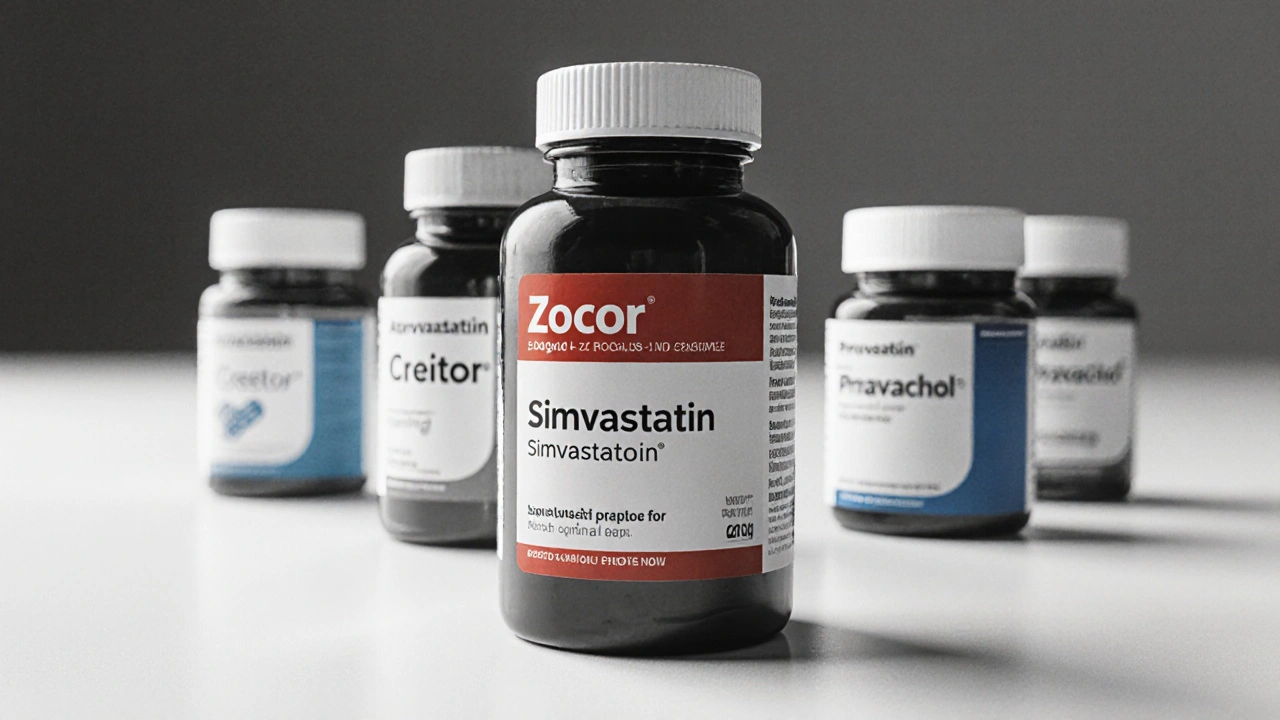Cholesterol Medication Alternatives: Natural Options and Smart Swaps
When your doctor talks about cholesterol medication alternatives, options that help manage high LDL without relying solely on prescription drugs. Also known as non-statin cholesterol treatments, these approaches focus on reducing bad cholesterol through diet, supplements, and daily habits that actually stick. Many people start on statins because they work fast—but side effects like muscle pain, fatigue, or liver stress make them hard to keep taking. That’s where real alternatives come in: not as magic fixes, but as consistent, science-backed choices that work over time.
One of the most proven plant sterols, natural compounds found in nuts, seeds, and fortified foods that block cholesterol absorption in the gut. Also known as phytosterols, they can lower LDL by up to 10% when taken daily at 2 grams. You’ll find them in spreads like Benecol or in small amounts in almonds and avocado. Then there’s fiber, especially soluble fiber from oats, beans, and psyllium husk, which binds to cholesterol and flushes it out. Also known as viscous fiber, it’s not just a supplement—it’s a daily habit that changes your gut environment. Studies show 5–10 grams a day can drop LDL by 5–15%. And unlike pills, you get it from food you already eat.
Omega-3s from fish oil don’t just help your heart—they lower triglycerides and reduce inflammation, which indirectly helps cholesterol balance. Prescription-grade omega-3s like Vascepa are strong, but even high-quality supplements can make a difference if you’re not eating fatty fish twice a week. Then there’s red yeast rice, a traditional Chinese remedy that contains monacolin K, the same compound in lovastatin. Also known as natural statin, it’s powerful—but it’s not regulated like pharmaceuticals, so quality varies. If you try it, get it from a trusted source and talk to your doctor, especially if you’re already on other meds. The big mistake people make? Thinking one thing will fix everything. It’s the combo: more fiber, more movement, less sugar, better sleep. Walking 30 minutes a day burns fat, improves insulin response, and helps your liver process cholesterol better. You don’t need a gym. Just move.
Some people swear by garlic supplements, green tea extract, or niacin—but the evidence is mixed. Niacin can raise HDL, but it also causes flushing and liver stress. Garlic might help a little, but not enough to replace a solid plan. The real winners are the ones you can live with: swapping white bread for steel-cut oats, choosing grilled chicken over fried, drinking water instead of soda. These aren’t quick fixes. They’re daily choices that add up. And when you pair them with regular check-ups, you’re not just avoiding meds—you’re rebuilding your health from the inside out.
Below, you’ll find real comparisons of supplements, diet plans, and natural approaches that actually work. No hype. No fluff. Just what people tried, what helped, and what didn’t.
Zocor (Simvastatin) vs Other Cholesterol Drugs: Detailed Comparison
Compare Zocor (simvastatin) with top statin and non‑statin alternatives, covering efficacy, side effects, cost, and how to pick the right cholesterol drug.
